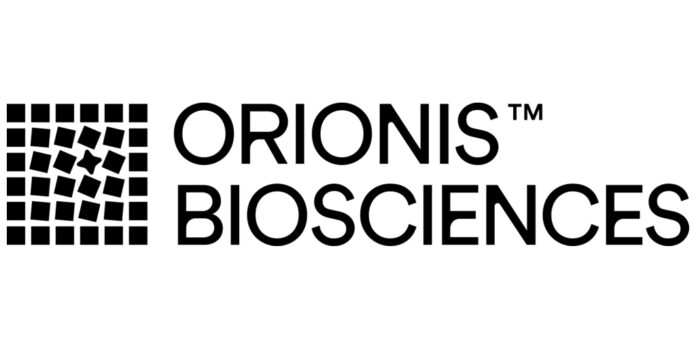BOSTON & GHENT, Belgium– Orionis Biosciences, a life sciences company pioneering innovation of highly selective and tunable therapeutics for cancer and beyond, today announced it has completed a $55 million financing round and expanded its team, naming Robert Petit, Ph.D., as Senior Vice President, Early Clinical Development and Bihua Chen to the Orionis Board of Directors.
Founded in 2015, Orionis has since developed its proprietary technology platforms, grown a deep pipeline and cemented a drug discovery deal with Novartis. This latest financing round provides the company with additional capital for R&D expansion, pipeline growth and advancement of its lead cancer immunotherapy programs into clinical trials. Existing and new investors participated in the round, including Cormorant Asset Management, Novartis and a series of high-caliber investment funds.
“We are grateful for the strong support of a world-class investor syndicate that shares our passion for advancing new modalities in cancer and other diseases,” said Nikolai Kley, Ph.D., Co-founder, President and Chief Executive Officer at Orionis. “As we near the clinic, we are thrilled to bring on Robert Petit, Ph.D., a pioneer in the development of cancer immunotherapies, as our Head of Early Clinical Development. In addition, we are pleased to welcome industry veteran Bihua Chen to our Board as we enter this next stage of growth. With two distinct precision medicine platforms, which focus on expanding druggability through genome-scale molecular glue discovery and on selectively targeting immune cells with conditionally active cytokines to reactivate the cancer immunity cycle, we are well-positioned to advance a diverse pipeline and translate our innovative approaches into new therapies.”
“I have spent my career working to develop new and better cancer therapies, so I’m incredibly excited to have joined to lead the team’s translational and clinical development efforts,” said Dr. Petit. “We are moving quickly to advance and expand our pipeline of first-in-class immunotherapies. The extraordinary technology platforms at Orionis have the potential to create a new class of more effective and better-tolerated cancer treatments that could significantly extend the potential of immunotherapy. I look forward to supporting Orionis in its path toward a clinical-stage company.”
Dr. Petit brings decades of experience in drug development, including at Bristol Meyers Squibb, where he led U.S. Medical development of the first FDA-approved immune checkpoint therapy. He has deep experience across medical and scientific aspects of pharmaceutical development and has directed programs in discovery, translational development and intellectual property development. Dr. Petit received his Ph.D. from The Ohio State University College of Medicine and a B.S. from Indiana State University.
“With its proprietary platform technologies, Orionis has the opportunity to solve some of the biggest challenges in oncology and beyond,” said Ms. Chen. “I am honored to join the Board of Directors at Orionis and to work with such an accomplished team.”
Ms. Chen is founder and CEO of Cormorant Asset Management, where she manages investments in public and private biopharmaceutical companies. She previously served as a sub-adviser to a large, multi-strategy hedge fund based in New York. Ms. Chen earned an MBA from The Wharton School of the University of Pennsylvania, an M.S. in molecular biology from the Graduate School of Medical Sciences at Cornell Medical College and a B.S. in genetics and genetic engineering from Fudan University.
Orionis is rapidly advancing a deep pipeline of biologics for the treatment of cancer based on its A-Kine™ platform, which engineers target-selective, conditionally active cytokines designed to trigger anti-tumor immune responses even in “cold” tumors that lack prevalent immune involvement and are refractory to checkpoint inhibitor therapies. A-Kines aim to avoid the systemic toxicities observed with traditional cytokine therapies.


